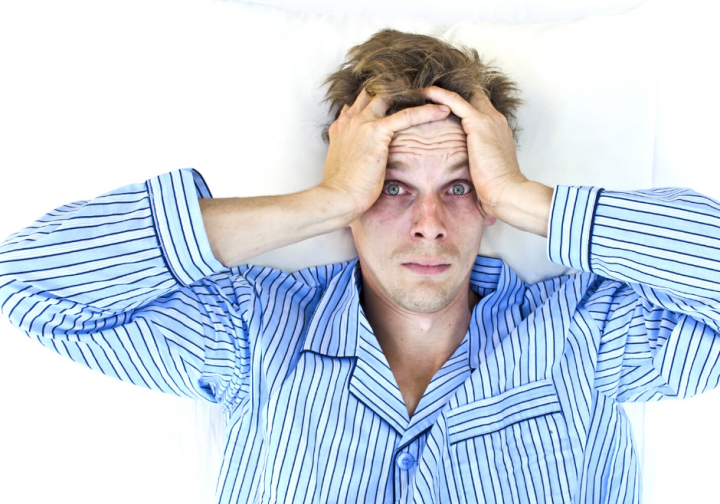
What a poor quality sleep does to my body?
You have surely heard before that a good quality sleep have a paramount influence on our health, as well as about sleeping hygiene habits and techniques helping to support good sleeping patterns, and that is what this article is not about. We bring you an article with rather a different angle - an explanation what happens to the human body physical functions when experiencing poor quality of sleep.
We spend approximately one third of our life time by sleeping. We might underestimate the importance of a good sleep, mainly because our conscious mind is at rest during the sleep, so we don’t remember, but most of the body functions and organs continue their work also during the night, although with partially reduced intensity, hence to highlight, sufficiently long and undisturbed sleep does ensure a full recovery of our body AND mind.
Most people know very well about sleeping hygiene habits which helps to achieve a good sleep, but the much more interesting question is, why the majority of people fail to comply with these recommendations? And why, as a direct consequence, so many people do have in fact a very lousy sleep? MUDr. Masner. PSYMED Head doctor of psychosomatic medicine, believes that it is not a lack of knowledge about sleeping recommendations, but a lack of motivation. So we approached this topic from a different angle: how do I find the motivation to care appropriately for my sleep?
Many medical studies proved that a large amount of adults suffer from insomnia - major reason being an inability to fall asleep or fragmentation of the sleep by waking up several times or waking up too early. As an example, a recent study based upon data gained through Swiss General Practitioners (Micheline Maire et al., 2020) shows that 36% of patients had significant current sleeping troubles and another 31% have had sleeping problems in the past. This means that only one third of the adult population profits from a stable good sleep, which seems quiet alarming. Very probably this has to do with a modern lifestyle which is burdened by a lack of physical activity, long working indoors hours, chronic exposition to screens and so on, which indeed makes it difficult to sleep well, compared to old times when man used to work physically all day long and went to bed tired early (with the hens we say here in Czech). The truth is that humans really need to have physical work or workout to ensure a good sleep.
Let’s have a look how the sleep does influence the body systems:
Influence on our immunity system:
Human body shows systematic fluctuation over the 24h day in human blood in immune parameters. These temporal changes originate from a combined influence of the circadian system and sleep that is extremely effective in inducing changes in white blood cell function (responsible for fighting infections and other diseases) and a shift towards production of proteins during the nocturnal period of sleep. Meaning that our quality of sleep has direct influence on the performance of our immune system. Especially in these days of a pandemic situation, we all have learned the significance of a strong immune system.
Influence on our blood pressure:
Chronic insomnia and disturbed sleep can be associated with development of arterial hypertension and consequently with cardiovascular disease. Chronically increased blood pressure damages the arteries and leads to narrowing of the vessels. After decades of high blood pressure people are at a higher risk for heart or brain stroke.
Influence on the insulin production:
A lack of sleep influences the release of insulin which is the crucial blood sugar lowering hormone. People who don’t get enough sleep have higher blood sugar levels and an increased risk of developing diabetes type 2, which is one of the main risk factors for cardiovascular disease.
Influence on our sexual drive:
A study conducted in 2011 with young male volunteers found that men who slept less than 5 hours for one week in controlled laboratory conditions had significantly lower levels of testosterone compared to a group of males with full night sleep testosterone levels. Low testosterone has negative consequence for young men, and not just in sexual behaviour and reproduction. It is critical in building strength, muscle mass and bone density. The influence on female hormones is less explored.
Influence on the body weight:
Sleep loss creates hormone imbalance in the body that promotes overeating leading to weight gain. Hormones that regulate appetite (leptin and ghrelin) are compromised and altered in its production when an adult doesn't get sufficient sleep, and it increases the feeling of hunger. Sleep deprivation is associated with growth hormone deficiency and elevated cortisol levels, both of which have been linked to obesity. Additionally, obesity have a negative influence on our sleep pattern, which closes the vicious circle.
So, this list of body effects can help to value the gift of a good sleep. Please note that this article has left out the adverse impact on the mental health – concentration, mental performance and memory that are equally negatively affected by a poor sleep, which we can talk about next time.
In conclusion, natural high quality sleep is literally a precious gift we should be caring for as it can significantly help to preserve our health and well-being.
If you experience any recent, short-term or long-term sleeping issues, do not hesitate to reach out to our Psychosomatic medicine team, under the lead of MUDr. Ondřej Masner.
For availability and bookings please contact our Unicare Medical reception at +420 235 356 553 or email reception@unicare.cz
Source:
Study of Micheline Maire et al., 2020
Study of Tanja Lange et al.,2010
